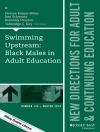This edited volume explores the role of outdoor environmental education in the contemporary society. It identifies some of the opportunities and challenges of this educational area, particularly in the growing digitalization of the contemporary society and the distancing between people and nature. Furthermore, it seeks to answer why outdoor environmental education is essential for developing students’ environmental citizenship competencies or developing their relationship with nature. The book also introduces the various approaches existing in the field, discusses their relevance, and highlights their unique features.
The book finishes with an overview of the practice of outdoor environmental education in selected countries from North America, Europe, and Asia.
表中的内容
1. Introduction.- Part I: Outdoor Environmental Education in the Contemporary World.- 2. Outdoor Environmental Education, Grounding a Tradition within Environmental Education.- 3. Is Policy the Whole Story: International trends and perspectives in Policy making and enactment in Outdoor Environmental Education.- 4. Connection to nature through outdoor environmental education: Insight from psychology.- 5. How education can be leveraged to foster adolescents’ nature connection.- 6. Outdoor Environmental Education in the Anthropocene: Beyond In/Out.- Part II: Approaches to Outdoor Environmental Education.- 7. Environmental Interpretation.- 8. Earth Education. Magical Learning Adventures for Living More Lightly.- 9. Place-based Education, Dynamic response to current trends.- 10. Forest Education – UK context. How this nature based outdoor education became a new ‘term’ in the UK and what challenges does it face in 2022.- 11. Long before, before, withinand around, after, and long after the program: Using environmental socialization strategies to amplify programming effects.- 12. Wild Pedagogies, Outdoor Education, and the Educational Imagination.- 13. Childhoodnature: Applying a sympoietic approach to child-outdoor-nature encounters.- Part III: Outdoor Environmental Education Programs as a Worldwide Phenomenon.- 14. Field Ecology: Learning nature of science in outdoor environmental education.- 15. The Maple Ridge Environmental School a case study: Ten years as an outdoor public elementary school and what we think we know now.- 16. Embracing nature, meaningful experiences for teaching and learning endeavors. Lessons from the Northern Gulf of California.- 17. The Bronte Creek Project: Outdoor Environmental Education in a High School Setting.- 18. Walk with Formosa Macaque.- 19. The GLOBE Pulchra Program. Blurring the Boundaries between Indoor and Outdoor, Science and Society, and Onsite and Online in the COVID World.- 20. Conclusion: Emerging Trends in Outdoor Environmental Education in the Post-COVID World
关于作者
Jan Činčera is an associate professor at the Department of Environmental Studies, Faculty of Social Studies at Masaryk University, Brno, Czech Republic. He focuses on instructional strategies that help achieve the goals of environmental education. He has authored more than twenty studies published in international journals, composed the Czech national guidelines for evaluation of environmental education programs, and published several books on environmental education and interpretation. Daphne Goldman is an associate professor and former chair of the Department of Environmental Science and Agriculture, Faculty of Education, Beit Berl College, Israel. Her research focuses on pedagogical approaches for developing environmentally literate citizens. She has authored over thirty studies published in prominent international journals. She is the joint founder of the national conference for environmental education and has advanced environmental education for sustainability at hercollege.
Iris Alkaher is a senior lecturer in the Faculty of Science at Kibbutzim College of Education, a former coordinator of the Master of Education program in environmental education, and a researcher in the college’s Center for Environmental and Sustainability Education. Her main research focuses on eco-humanism as an approach and practice, education for sustainability in diverse multicultural settings, and innovative approaches and pedagogies in science and environmental education.
Bruce Johnson is a professor of environmental learning and the Dean Emeritus of the College of Education at the University of Arizona. His research focuses on ecological concepts and environmental values/attitudes and actions. As the International Program and Research Coordinator for the Institute for Earth Education, he oversees earth education programs and leads sessions on earth education around the world.
Michal Medek is a senior lecturer of environmental education and he has been with the faculty since 2005. His research focuses on environmental interpretation and inquiry-based environmental education. As the founder of two residential environmental education centers, Michal has been connecting academia with the in-field environmental education program development and training of environmental education centers’ staff. He is also the director of the Czech Institute for Heritage Interpretation.












